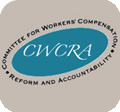| Home | Press Home | In the News | Schwarzenegger Calls for Cap on California Spending
August 20, 2003 Schwarzenegger Calls for Cap on California Spending , Bloomberg
Arnold Schwarzenegger, the Hollywood actor running as a Republican candidate in California’s Oct. 7 recall election for governor, said he would call for no new taxes and a constitutional cap on state spending. “I am principally against taxing because I feel the people of California have been punished enough,” Schwarzenegger said at a news conference in Los Angeles. “I teach my kids not spend more than they have, and we have to teach the same thing in Sacramento.” The actor said he would not cut education, and that he will call a special session immediately after his election to address California’s soaring unemployment and worker compensation costs. He would appoint an outside auditor, economist John Cogan of the Hoover Institute, to look at California’s budget because it’s now impossible to tell where state money is being spent, he said. California has run deficits in two of the last three years, including a $23.6 billion shortfall last year and a record $38 billion deficit this year. State finance officials anticipate an $8 billion shortfall next year. The ex-bodybuilding champion is one of 135 candidates vying to replace Governor Gray Davis. Joel Fox, a policy consultant to the Schwarzenegger campaign, said the candidate probably will seek a spending cap amendment to the state constitution with a formula based on the inflation rate or an increase in state population. The measure would probably apply to only the general fund, but no final decisions have been made, Fox said. “The budget cap is a long-term solution,” Fox said. A Combination Schwarzenegger’s goal of avoiding any new taxes may prove impossible, said Robert Pariseau, who manages the $675 million USAA California Bond Fund. “For someone to come up and say, `We’re going to freeze taxes and only make cuts,’ I don’t think that’s going to be achievable,” said Pariseau. “It’s going to take compromise. It’s going to take a combination of well thought-out tax increases that will not hurt jobs, if such a thing exists, and some targeted, focused cuts.” Schwarzenegger said tax increases would only be sought to pay for extraordinary expenses such as a terrorist strike or an earthquake. Proponents of recalling Davis say he misled the public about the size of the deficit to win a second term in November and have criticized him for his handling of the state’s energy crisis in 2002 and for spending a $12 billion surplus California had accumulated. Workers Compensation If a majority rejects Davis in the first part of the recall election, his successor would be the candidate who receives the most votes from among those running. The new governor takes offices immediately. Currently, 58 percent of likely voters would choose to oust Davis, according to a Field Research Corp. poll. California businesses pay the highest workers compensation premiums in the country after deregulation of the system in 1993, the stock market decline in 2000 and 2001, and increased health care costs shrunk the number of insurance providers. At the same time, lawmakers last year approved a bill that boosted the maximum weekly benefit for injured workers to $602 from $490. Schwarzenegger may address rising workers compensation costs, for example, by requiring doctors to have more evidence before prescribing long-term treatments, Fox said. Hostile Schwarzenegger’s remarks followed a meeting he held with his economic advisers, former U.S. Secretary of State George Shultz and Warren Buffett, the world’s second-richest man and head of Berkshire Hathaway Inc. He said he would solve California’s fiscal problems by encouraging businesses to operate in the state. “We have to get rid of this hostile environment toward jobs in California,” Schwarzenegger said. Buffett said California’s credit has been harmed by its financial troubles, and cited the state’s need to pay $84 million to a syndicate of seven investment banks to back the state’s sale of $11 billion of tax-exempt warrants in June just to pay its bills. California has the lowest credit rating of any U.S. state and pays more than any other to borrow money. Oxygen “Credit is like oxygen. When you have it, you don’t notice it. But when you don’t have it, it’s all you think about,” Buffett said. Investors have become more confident about California’s bonds as yields have fallen. Yields on 10-year California general obligation bonds have fallen this week to 4.67 percent from 4.72 percent Friday as prices rose, Bloomberg data shows. Yields for the 10-year bond peaked at 4.78 percent on Aug. 4, two days before Schwarzenegger announced he would run for governor. Schwarzenegger said the state’s unemployment insurance fund and the state’s worker’s compensation insurance systems are too costly and combined with excessive taxes, are pushing companies out of California. As governor of California, Davis oversees an economy that produces more than $1.3 trillion a year and is home to companies such as Intel Corp. and Cisco Systems Inc., the world’s seventh and 14th biggest companies by stock market value. “There’s a new four-letter word in California that we’re going to pay a lot of attention to, and that’s `jobs,”’ Shultz said. “My state is in trouble and we need a leader who can lead us out of it.” Lawsuit Rejected Among the 20 panelists on Schwarzenegger’s economic committee he met with today were Ray Lane, the former chief operating officer of software maker Oracle Corp. and a partner in the venture capital firm Kleiner Perkins Caufield & Byers, and Michael Boskin, the chairman of the President’s Council of Economic Advisers under the first president Bush. The panel also includes Warren Hellman, a former president of Lehman Brothers, who founded Hellman & Friedman, a San Francisco buyout firm that owns a 10 percent stake in the Nasdaq stock market. Hellman, a board member of Levi Strauss & Co., joined a group of business leaders last month to warn that the recall could have a devastating impact on the California economy. Schwarzenegger last week made two donations of $1 million each into his campaign account, money to pay for television commercials that began airing around the state today, according to records with the California secretary of state’s office. His campaign had $2.3 million as of Monday with the remainder coming from 15 other donors, including his wife, Maria Shriver, who gave $21,200, the records show. Other Candidates While Schwarzenegger was speaking with reporters, a federal judge in Los Angeles rejected a claim by the American Civil Liberties Union and other groups that sued to delay the vote, saying the election should take place as scheduled. The groups argued that six urban counties need more time to replace punch- card voting machines to ensure a fair election. Meanwhile, former baseball Commissioner Peter Ueberroth, a Republican who’s running in the election, proposed in Los Angeles a one-time tax amnesty that would raise as much as $6 billion by letting residents make past-due tax payments without facing legal sanctions. Ueberroth said he opposes raising taxes and would combine the amnesty with spending cuts. The leading Democrat in the race, California Lieutenant Governor Cruz Bustamante, said Tuesday in Sacramento that he would propose to raise taxes by $8 billion, including income taxes on the wealthiest Californians to 11 percent from 9.3 percent, higher taxes on alcohol and cigarettes and more frequent assessments on the value of commercial property. |
| | Monday, June 7, 2004 | | |
 | |
| Home | |
| CALIFORNIA RECOVERY TEAM | |
| About CRT | |
| GET INFORMED | |
| About Arnold | |
| Leadership | |
| Endorsements | |
| News Room | |
| Opinion | |
| JOIN THE TEAM | |
| Contribute | |
| Volunteer | |
| Share Your Views | |
| SERVICES | |
| Image Center | |
| Multimedia Center | |
| Downloads | |
| Search News | |
| Privacy Policy | |
| Contact Us | |
| ||||||||||||||||
|
Contact Us Privacy Policy |
Copyright © 2003 |


